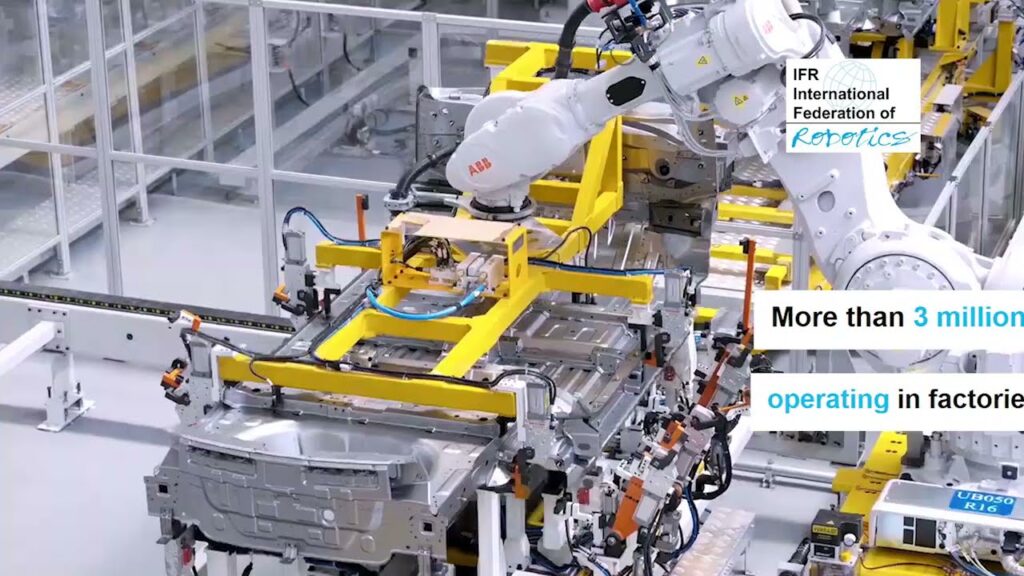Industrial Robotics: A Glimpse into the Future
2020 was a year of unprecedented challenges and transformations in various industries. Amidst the chaos, the world of robotics continued to evolve and make significant strides. The proliferation of industrial robots worldwide in 2020 showcased the increasing reliance on automation and its impact on different sectors. In this article, we will delve into the key numbers and trends of industrial robots installed globally in 2020, shedding light on the future of manufacturing and the leading industrial robot manufacturers.
Throughout history, humans have constantly sought ways to enhance efficiency and productivity. Industrial robots have emerged as a game-changer in the manufacturing landscape, revolutionizing processes and reshaping the industry's future. With advancements in technology and the rise of Artificial Intelligence (AI), these robots are becoming smarter, more adaptable, and capable of performing tasks that were once solely executed by humans.
According to recent data, the number of industrial robots installed worldwide in 2020 reached an astonishing figure of over 2.7 million units. This represents an increase of 12% compared to the previous year. The surge in installations can be attributed to several factors, including the need for cost-effective and reliable solutions, the drive for increased productivity, and the desire to mitigate the impact of labor shortages.
Among the top industrial robot manufacturers, several names stand out for their significant contributions to the field. Universal Robots, a Danish company, continues to dominate the market with their versatile and user-friendly collaborative robots. With a focus on providing smaller and medium-sized companies with accessible automation solutions, Universal Robots has played a pivotal role in democratizing robotics.
ABB, a global leader in robotics, also holds a prominent position in the industry. Their robots are widely employed in various sectors, including automotive, electronics, and healthcare. Offering a comprehensive range of robots that cater to different applications and requirements, ABB has consistently delivered innovation and reliability.
Another notable player in the industrial robot manufacturing sector is FANUC. Known for their precision and durability, FANUC robots have earned a reputation for excellence. The company's robust robots are often deployed in the automotive, aerospace, and consumer goods industries.
Yaskawa Electric Corporation, a Japanese manufacturer, has emerged as a frontrunner in the development and production of industrial robots. Their collaborative and innovative approach has paved the way for groundbreaking solutions across multiple industries. Yaskawa's commitment to research and development ensures that their robots remain at the forefront of technological advancement.
While these companies lead the pack, several other industrial robot manufacturers contribute to the ever-growing market. Companies such as KUKA, Kawasaki Robotics, and Nachi-Fujikoshi have made significant strides in their respective niches, contributing to the diversity and vibrancy of the robotics landscape.
The immense growth of industrial robots worldwide in 2020 signifies a shift towards increased automation and a growing acceptance of the role robots play in driving efficiency and productivity. From automotive assembly lines to healthcare facilities, robots are finding their place in a multitude of industries, transcending the boundaries of traditional manufacturing.
With the COVID-19 pandemic further highlighting the need for reliable and safe operations, the demand for industrial robots is expected to continue skyrocketing. These robots offer a unique advantage by minimizing human-to-human contact while maintaining high levels of accuracy and output.
Looking ahead, the future of industrial robotics appears bright and promising. As technology continues to advance, robots will become even more intuitive, adaptive, and collaborative. The integration of AI and Machine Learning algorithms will further enhance their capabilities, enabling them to navigate complex tasks effortlessly.
The potential applications of industrial robots are virtually limitless. From hazardous environments to intricate assembly processes, robots are poised to make a profound impact on various industries, streamlining operations, and fostering innovation.
In conclusion, the exponential growth of industrial robots installed worldwide in 2020 paints a clear picture of the future of manufacturing. As automation becomes an inherent part of industries across the globe, the leading industrial robot manufacturers, such as Universal Robots, ABB, FANUC, and Yaskawa, continue to innovate and drive the industry forward. With each passing year, the boundaries of robotics are pushed, ushering in a new era of efficiency, productivity, and endless possibilities. Embracing this revolution is not only vital for the success of individual companies but for the future of global industry as a whole.
Industrial Robot
"Discovering the Latest Insights on Industrial Robots in 2021: From Manufacturers to Global Operations"


